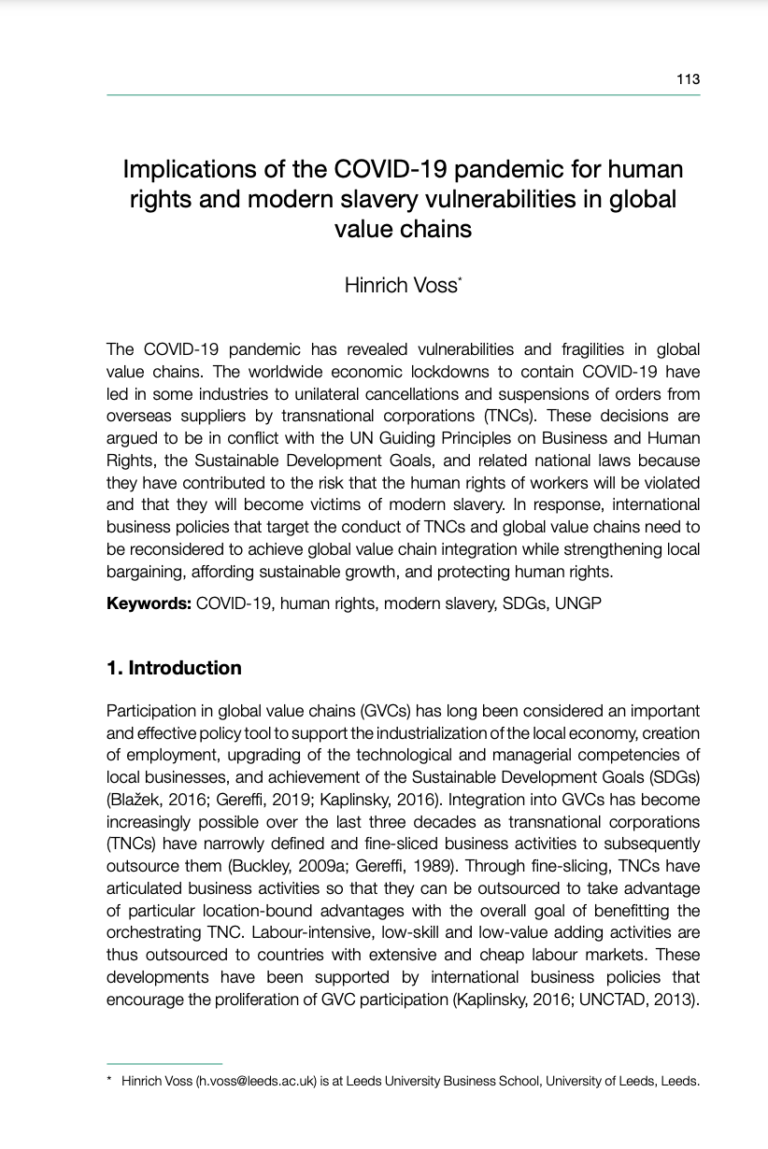National Human Trafficking Hotline At-A-Glance
PublicationsAn at a glance document providing information about the services of the National Human Trafficking Hotline.
Written by Hinrich Voss.
The COVID-19 pandemic has revealed vulnerabilities and fragilities in global value chains. The worldwide economic lockdowns to contain COVID-19 have led in some industries to unilateral cancellations and suspensions of orders from overseas suppliers by transnational corporations (TNCs). These decisions are argued to be in conflict with the UN Guiding Principles on Business and Human Rights, the Sustainable Development Goals, and related national laws because they have contributed to the risk that the human rights of workers will be violated and that they will become victims of modern slavery. In response, international business policies that target the conduct of TNCs and global value chains need to be reconsidered to achieve global value chain integration while strengthening local bargaining, affording sustainable growth, and protecting human rights.

An at a glance document providing information about the services of the National Human Trafficking Hotline.
Domestic workers are one of the communities least protected by existing laws and one of the most vulnerable to exploitation in the world. We have documented an array of systemic and widespread abusive practices against Sierra Leonean women domestic ...Read More
The UK seeks to be a leader in the fight against modern slavery. The present border system is demonstrably not good enough at preventing traffickers getting through and safeguarding victims. Meanwhile, without a new determination for action, convict...Read More
This report from 2005 researches the weaknesses of social auditing. Social audits to check working conditions in production facilities emerged in the mid-1990s after a number of high profile companies were widely scrutinized for substandard working ...Read More